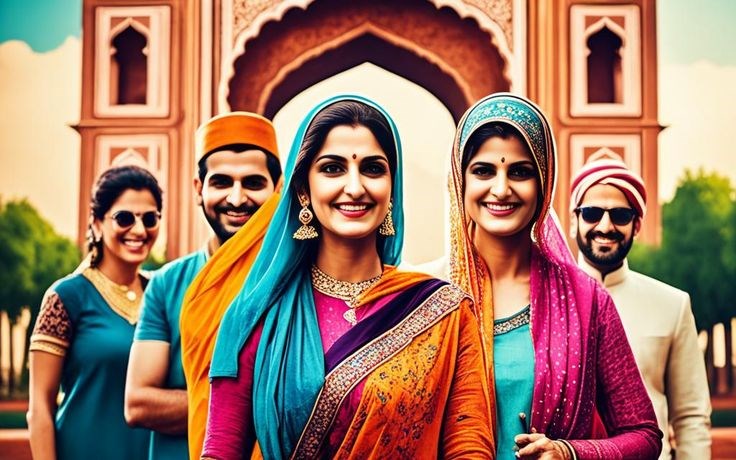
21-Apr-2025 , Updated on 4/21/2025 11:35:51 PM
Muslim Population in India: States with the Highest Muslim Population
States with Largest Muslim Populations
The largest number of Muslim population is found in Uttar Pradesh whose population is thirty eight million five hundred thousand Muslims mainly inhabiting the urban area of Lucknow and Moradabad. Migration history especially influenced by Mughals and higher percentage of urban population. West Bengal conforms, where Muslims are close to 27% of West Bengal’s population especially in Murshidabad and Malda areas. Next on the list is Bihar, with several districts containing a high reproducing Muslim population especially Kishanganj and Araria. All these states have a demography majorly representing India’s religions but have issues of developmental as well as political inclusion and reservation of resources, due to which have formulated specific policies for the development of these states.
Cultural and Historical Influence
The Muslims have seen to have played their part in changing the course of art and architecture as well as food hygiene especially in areas like Uttar Pradesh and Jammu and Kashmir. Delhi, Hyderabad, and Lucknow exhibit Mughal architecture and heritage, whereas Mappila of Kerala has similarities with both Arabs as well as Malabars. Eid-ul-Fitr and Muharram are two examples of the festivals that bring harmony in the country. Unfortunately, political aspects of Islam dominate them, and it is vital to pay more attention to Indian Muslim contributions in the country’s history. Besides continuing to protect this heritage, the promotion of interfaith relations remains vital for the unity of the country.
Socioeconomic Challenges and Opportunities
These states like Assam and West Bengal have Muslims as part of their population but these populations have low literacy levels and are rarely employed. To address these gaps, the Sachar Committee recommendations that have been designed by the Government of India can at least be partially useful. On the subject of ‘entrepreneurship and enterprise’, people within the context of the community are involved in entrepreneurial activities especially in the textiles and trade business, despite this the area of ‘financial inclusion’ is still wanting. Education plays an important role in enabling the Muslim youth to be economically productive, and skill development is essential in making this a reality. There is a need for leaders’ intervention to ensure the regions in question experience fair levels of development so that majority demographics can yield fruit-bearing results.
Political Representation and Influence
Muslims in the political process represent a decisive block particularly in Kerala as well as Uttar Pradesh where they decide the fate of the constituencies. Nevertheless, the prospects of women within parliaments and other official positions remain low, thereby diminishing the defense of the communities’ concerns. This picture shows that instead of ensuring meaningful participation, parties underemployment reserves an empty token. The enhancement of the political participation status through reserved seats or proportional representation could guarantee fair political representation. Weak Muslim leadership in engaging with structures of oppression, exploitation, and marginalization of Muslims and other minorities is also a problem that needs to be fixed in order to support secular politics of solidarity with others.
Future Prospects and National Integration
The size of Muslims is expected to increase further in India, thus, proper steps should be taken to stop the division of the society. The examples of Kerala and Jammu & Kashmir hold good where people exist perfectly together, but it is unfortunate that some states are experiencing tension of this sort. Thus, education reforms, fostering interfaith dialogue, and economic development can help to overcome discrimination. The government needs to reconcile demographic factors with secularism and ensure that some factors of stability in the society are met. India has to bridge political-social differences and harmonize cultural diversities in the way to form and sustain its multiculturalism outlook and progressive growth for all social groups.

Content Writer
Hi, I’m Meet Patel, a B.Com graduate and passionate content writer skilled in crafting engaging, impactful content for blogs, social media, and marketing.
Join Our Newsletter
Subscribe to our newsletter to receive emails about new views posts, releases and updates.
Copyright 2010 - 2026 MindStick Software Pvt. Ltd. All Rights Reserved Privacy Policy | Terms & Conditions | Cookie Policy